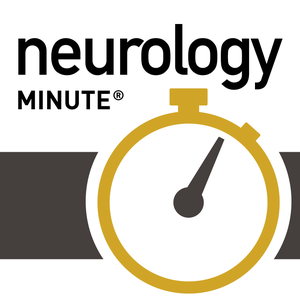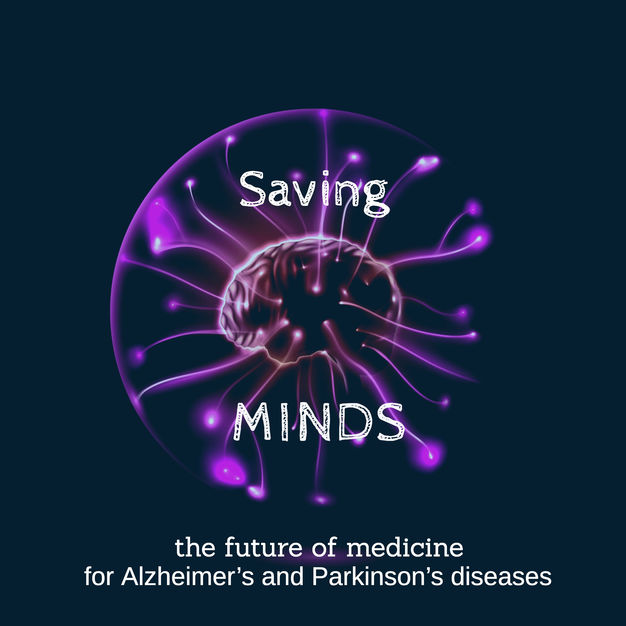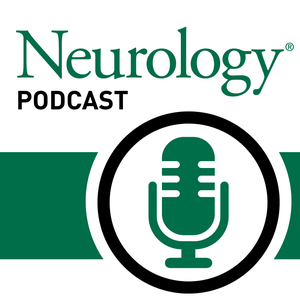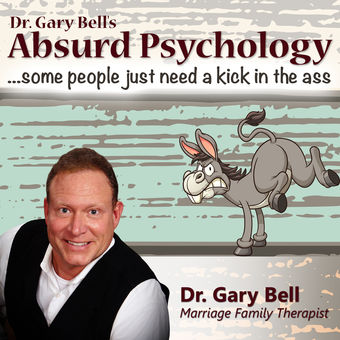
JNNP podcast
BMJ Group
Podcasts from The Journal of Neurology, Neurosurgery, and Psychiatry featuring interviews and debates
- 38 minutes 57 secondsDistinguishing autoimmune nodopathies from CIDP, with Dr. Ruth Huizinga and Dr. Maarten Titulaer
Chronic inflammatory demyelinating polyradiculoneuropathy (CIDP) can be difficult to distinguish from autoimmune nodopathy. In this podcast, Dr. Saima Chaudhry (1) is joined from the Netherlands by Dr. Ruth Huizinga (2) and Dr. Maarten Titulaer (3), to discuss their article, "Clinical relevance of distinguishing autoimmune nodopathies from CIDP: longitudinal assessment in a large cohort". They start with explaining what an autoimmune nodopathy really is, patient features to look out for, and the typical testing process for identifying CIDP.
(1) Warren Alpert Medical School, Brown University, Rhode Island, USA
(2) Department of Immunology, Erasmus MC, University Medical Center, Rotterdam, The Netherlands
(3) Department of Neurology, Erasmus MC, University Medical Center, Rotterdam, The Netherlands
Please subscribe to the show on Apple Podcasts, Spotify or find it on your platform of choice. Your feedback and reviews are very appreciated.
Follow JNNP on twitter: @JNNP_BMJ
15 July 2024, 10:03 am - 39 minutes 42 secondsNutritional peripheral neuropathies, with Dr. Alexander Rossor
The cause of a nutritional neuropathy may not always be obvious when first examining a patient. Restrictive diets with roots in religious practices or personal preferences will be less familiar to neurologists than issues involving bariatric surgery or diseases of malabsorption, and can present as being not overtly malnourished. A recent review in JNNP details links between B-vitamin deficiencies and peripheral neuropathy, and discusses historical trends in the occurrence of nutritional neuropathies. The review's last author, Dr. Alexander Rossor (1), joins host Dr. Saima Chaudhry (2) to talk through how to approach this diagnosis.
Read the paper here: "Nutritional peripheral neuropathies"
(1) UCL Queen Square Institute of Neurology, London, UK
(2) Warren Alpert Medical School, Brown University, Rhode Island, USA
Please subscribe to the show on Apple Podcasts, Spotify or find it on your platform of choice. Your feedback and reviews are very appreciated.
Follow JNNP on twitter: @JNNP_BMJ
17 April 2024, 4:00 am - 40 minutes 2 secondsDistinguishing primary from functional tics
How often do movement disorder specialists agree when classifying tics? A recent study published in JNNP explores this question with a two-stage approach, seeking a diagnosis from experts first based on video evidence alone and then following the provision of additional clinical data. The study's last author, Dr. Christos Ganos (1), joins host Dr. Saima Chaudhry (2) to discuss the results.
Read the paper here: "Distinguishing functional from primary tics: a study of expert video assessments"
Related links:
European Society for the Study of Tourette Syndrome 2022 criteria for clinical diagnosis of functional tic-like behaviours: International consensus from experts in tic disorders
https://onlinelibrary.wiley.com/doi/10.1111/ene.15672Tics and functional tic-like movements: can we tell them apart?
https://www.neurology.org/doi/10.1212/WNL.0000000000008372(1) Department of Neurology (C.G.), Charité University Medicine Berlin, Germany
(2) Warren Alpert Medical School, Brown University, Rhode Island, USA
Please subscribe to the show on Apple Podcasts, Spotify or find it on your platform of choice. Your feedback and reviews are very appreciated.
Follow JNNP on twitter: @JNNP_BMJ
19 February 2024, 5:00 am - 27 minutes 45 secondsNitrous Oxide Abuse
With the UK government announcing plans to make recreational use of nitrous oxide illegal, JNNP podcast host Dr. Saima Chaudhry (1) is joined by London-based neurologist Dr. Alastair Noyce (2)(3) to examine the findings of his group's recently published research paper, "Nitrous oxide-induced myeloneuropathy: a case series". Read the paper here: https://jnnp.bmj.com/content/94/9/681
Related links:
https://www.gov.uk/government/news/nitrous-oxide-to-be-illegal-by-end-of-the-year
(1) Warren Alpert Medical School, Brown University, Rhode Island, USA
(2) Barts Health NHS Trust, London, UK
(3) Preventive Neurology Unit, Centre for Prevention, Diagnosis and Detection, Faculty of Medicine and Dentistry, Queen Mary University of London, Wolfson Institute of Population Health, London, UKPlease subscribe to the show on Apple Podcasts, Spotify or find it on your platform of choice. Your feedback and reviews are very appreciated.
Follow JNNP on twitter: @JNNP_BMJ
22 September 2023, 8:54 am - 30 minutes 15 secondsBrain Fog Demystified
Social media platforms and clinical patient encounters are abundant in references to brain fog, but how much is it really understood? In this episode, JNNP's podcast host, Dr. Saima Chaudhry (1), speaks with Dr. Laura McWhirter (2) about her recently published article, "What is Brain Fog?"and how further understanding of this can help to better treat patients.
You can read the paper at the following link: https://jnnp.bmj.com/content/94/4/321
(1) Warren Alpert Medical School, Brown University, Rhode Island, USA(2) Centre for Clinical Brain Sciences, The University of Edinburgh, Edinburgh, UK
Please subscribe to the show on Apple Podcasts, Spotify or find it on your platform of choice. Your feedback and reviews are very appreciated.
Follow JNNP on twitter: @JNNP_BMJ
8 August 2023, 9:08 am - 38 minutes 29 secondsA roadmap to ALS prevention: strategies and priorities
In this episode, JNNP's new podcast host Dr. Saima Chaudhry (1) speaks with Dr. Michael Benatar (2) about his recently published article, "A roadmap to ALS prevention: strategies and priorities". This explores a new approach to Amyotrophic lateral sclerosis, with an emphasis on earlier treatment before significant damage has occurred. This is important due to the limited capacity of the central nervous system to repair itself. The researchers involved sought to understand contributing factors for ALS risk, and to identify high-risk groups for further study.
Note: The genetic therapy referred to as Tofersen, under review at the time of recording, has been approved by the FDA: https://www.fda.gov/drugs/news-events-human-drugs/fda-approves-treatment-amyotrophic-lateral-sclerosis-associated-mutation-sod1-gene
You can read the paper at the following link: https://jnnp.bmj.com/content/94/5/399
(1) Warren Alpert Medical School, Brown University, Rhode Island, USA(2) Department of Neurology, University of Miami Miller School of Medicine, Miami, FL, USA
Please subscribe to the show on Apple Podcasts, Spotify or find it on your platform of choice. Your feedback and reviews are very appreciated.
Follow JNNP on twitter: @JNNP_BMJ
15 June 2023, 3:07 pm - 21 minutes 17 secondsMOGAD: Definition, diagnosis and treatment
In this episode, JNNP's new podcast host Dr. Saima Chaudhry (1) speaks with Dr. Matteo Gastaldi (2) about Myelin oligodendrocyte glycoprotein antibody-associated disease, or MOGAD for short. A multi-centre retrospective study, "Prognostic relevance of quantitative and longitudinal MOG antibody testing in patients with MOGAD", was recently published in JNNP, and Dr. Gastaldi is its first author. Listen to this podcast to learn what MOGAD is, its differential diagnosis and the potential pathogenesis. Plus some discussion of the use of MOG titres in predicting relapse of the disease. You can read the paper at the following link: https://jnnp.bmj.com/content/94/3/201
(1) Warren Alpert Medical School, Brown University, Rhode Island, USA (2) Neuroimmunology Research Unit, IRCCS Mondino Foundation, Pavia, Italy Please subscribe to the show on Apple Podcasts, Spotify or find it on your platform of choice. Your feedback and reviews are very appreciated.Follow JNNP on twitter: https://twitter.com/jnnp_bmj
15 May 2023, 11:12 am - 10 minutes 1 secondCGRP in migraine: current therapeutics, future implications and potential off-target effectsIn this podcast, JNNP's Podcast Editor, Colin Mahoney, interviews Dr Jason Ray (Neurology, Alfred Health, and Department of Neuroscience, Monash University, Melbourne). Dr Ray discusses the role of calcitonin gene related peptide in migraine and the growing body of evidence for the role of therapies directed against this protein in migraine and beyond. He also highlights emerging off-target side effects to monitor for.
Related article: https://jnnp.bmj.com/content/92/12/1325
21 December 2021, 7:33 pm - 20 minutes 2 secondsAlemtuzumab’s impact on functional and structural integrity of the visual system in MSProf Michael Barnett, Director Sydney Neuroimaging Analysis Centre and Professor of Neurology, University of Sydney, joins JNNP's Podcast Editor, Colin Mahoney, to discuss how the use of Alemtuzumab may have longer-term impacts on improving one of the most commonly involved neurological pathways, the visual system, in multiple sclerosis (MS). Prof Barnett discusses his team's results after following up patients with highly active MS for 24 months, using multifocal visual evoked potentials and advanced neuroimaging. He also talks about what this means for future remyelination strategies.
Related paper: https://jnnp.bmj.com/content/92/12/1319
17 November 2021, 4:09 pm - 23 minutes 9 secondsGuidelines for the management of functional speech and communication disorders
A/Prof Jan Baker, Speech Pathologist, Flinders University and UTS. Dr Laura McWhirter, University of Edinburgh joins editor Colin Mahoney to discuss the first comprehensive guidelines developed to assist speech and language professionals in the management of functional communication, voice, swallow and cough disorders. As part of a global team they have developed a set of clinically focused guidelines in the recognition and management of theses disorders and discuss the highlights on the Podcast. https://jnnp.bmj.com/content/92/10/1112
27 September 2021, 10:56 am - 9 minutes 54 secondsThe impact of traumatic brain injury on neurocognitive outcomes in children
Mark Goh and Shu-Ling Chong, Duke-NUS Medical School and KK Women's and Children's Hospital, Singapore joins editor Colin Mahoney to discuss their systematic review and meta-analysis spanning 6000 articles dealing with neurocognitive outcomes following traumatic brain injury (TBI) in children. They highlight how dose of TBI impacts executive function and memory with potentially long term impacts. https://jnnp.bmj.com/content/92/8/847
31 August 2021, 6:58 am - More Episodes? Get the App
Your feedback is valuable to us. Should you encounter any bugs, glitches, lack of functionality or other problems, please email us on [email protected] or join Moon.FM Telegram Group where you can talk directly to the dev team who are happy to answer any queries.
 Neurology Minute
Neurology Minute
 Saving Minds
Saving Minds
 Neurology® Podcast
Neurology® Podcast
 Dr. Gary Bell's Absurd Psychology
Dr. Gary Bell's Absurd Psychology